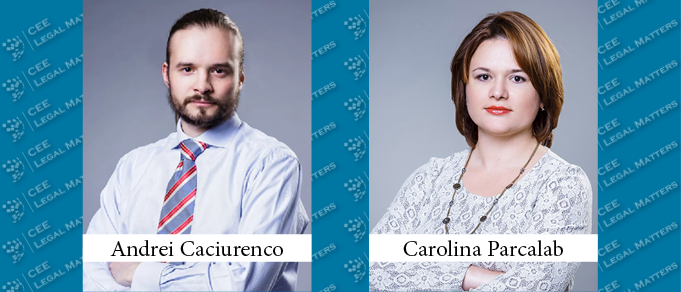The Moldovan Government continues to promote in-depth reforms designed to meet the challenges of a digital economy. The last summer was marked by the adoption of new regulations aiming to stimulate private-sector innovation. The new legislation also instituted new responsibilities for digital platforms for creating, sharing, and streaming digital content to Moldovan users.
New Copyright Law
On July 22, 2022, the Parliament adopted Law No. 230 on Copyright and Related Rights, which replaced the former Copyright Law (2010). The new law transposes thirteen European Directives, including Directive (EU) 2019/790 of the European Parliament and of the Council of 17 April 2019 on copyright and related rights in the Digital Single Market. Among others, the new law is purposed to address the concerns about the extent of digital platforms’ responsibility for shared illegal content that could include infringement of intellectual property rights.
The new law defines an online content-sharing service provider as a provider of information society services having the main purpose of storing and giving the public access to a large amount of copyright-protected works, uploaded by its users, that are organized and promoted for profit-making purposes. The new law explicitly excludes providers such as not-for-profit online encyclopedias, not-for-profit educational and scientific repositories, open-source software-developing and sharing platforms, providers of electronic communications services, online marketplaces, business-to-business cloud services, and cloud services that allow users to upload content for their own use.
By offering access to the public to works or other copyrighted materials uploaded by its users, the providers are considered to perform an act of communication to the public or of making the respective materials available to the public. Therefore, providers are required to obtain authorization from the rightsholders, notwithstanding that such materials are uploaded by users. In the absence of such authorization, the providers become liable for unauthorized acts of communication to the public.
The new providers (providers of online content-sharing services that have made their services available in the Republic of Moldova for less than three years) will not be held responsible in case the following conditions are cumulatively met: (1) they made efforts to obtain authorization from the rightsholder, and (2) they acted expeditiously upon receipt of a sufficiently substantiated notification to terminate access to or remove protected works and other subject matter from their websites.
New providers with an average number of unique visitors per month that exceeded five million in the preceding calendar year are also exonerated from liability if they also demonstrate that they have made their best efforts to prevent other downloads of the works and other protected material for which the holders have not provided the relevant and necessary information. The new Law on Copyright and Related Rights became effective on October 9, 2022.
Broadcasting Services Code Amended
In June 2022, the Moldovan Broadcasting Services Code was amended as a response to Russian propaganda on the war in Ukraine. The aim of the legislative amendment was to re-introduce the definition of disinformation that had been dropped in 2020 and to ban the disinformation and propaganda on military aggression.
The Parliament likewise re-approved the obligation of Moldovan media broadcasters, also dropped in 2020, to observe the minimum quotas of audiovisual products from EU member states, the US, Canada, and other countries that have ratified the European Convention on Transfrontier Television of the Council of Europe. Thus, according to the amendments, Moldovan linear media service providers will have to observe at least a 50% quota of production from the states listed above, while a 30% quota is applied to non-linear media.
The distinction between linear and non-linear media was introduced by the Moldovan Broadcasting Services Code in 2018, approved in order to create the framework required for the implementation of Directive 2010/13/EU of the European Parliament and of the Council of 10 March 2010 on the coordination of certain provisions laid down by law, regulation, or administrative action in the Member States concerning the provision of audiovisual media services. The minimum quota obligations re-introduced by the legislative amendment have been effective since July 2, 2022.
By Andrei Caciurenco, Partner, and Carolina Parcalab, Legal Manager, ACI Partners
This article was originally published in Issue 9.10 of the CEE Legal Matters Magazine. If you would like to receive a hard copy of the magazine, you can subscribe here.






















